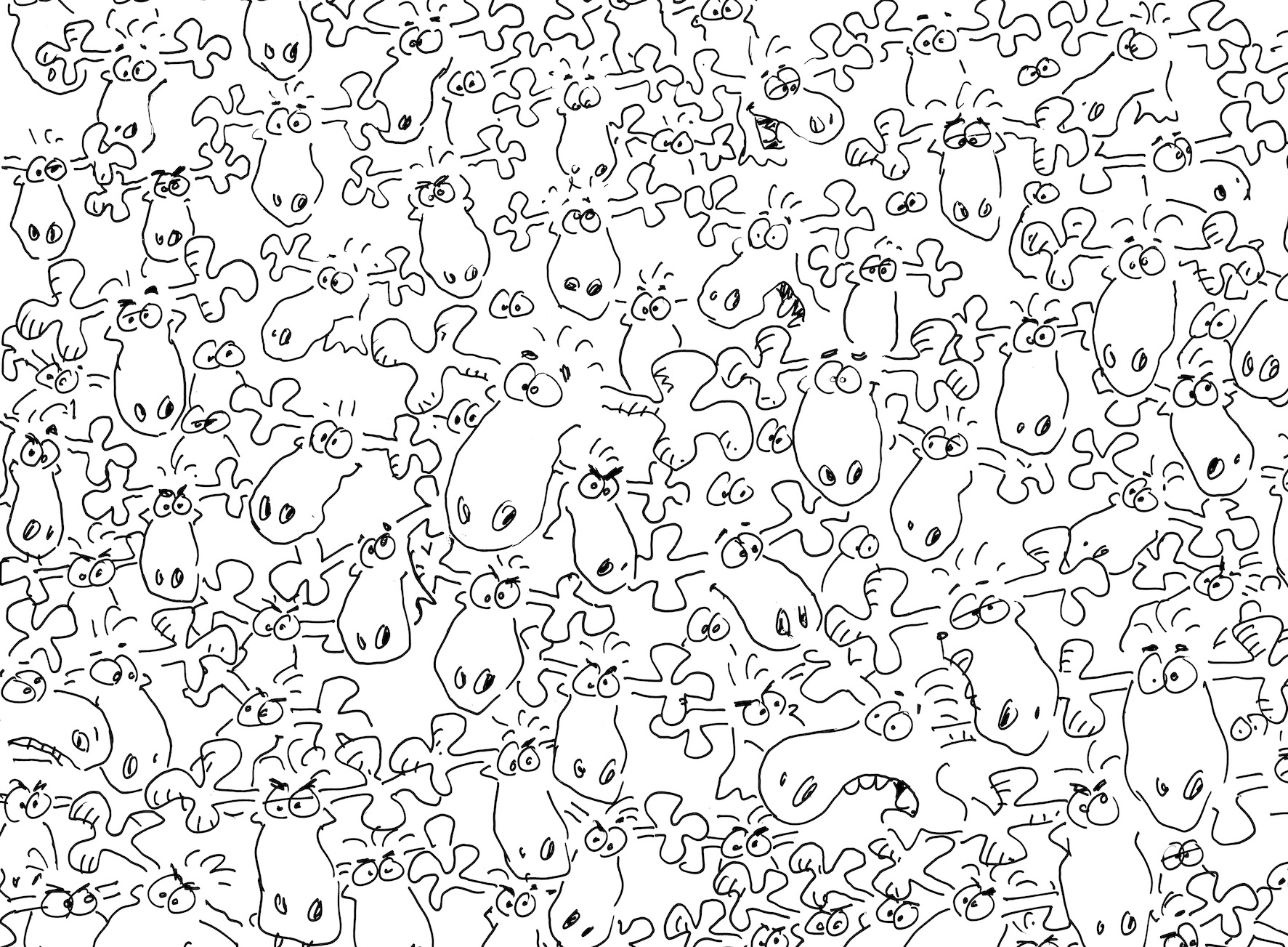
The New York Times did a gushy interview with a gay artist from Spain, who did early comics that focused on transsexuality:
A case in point is the work of the author, painter and cartoonist Nazario Luque Vera, 80, whose work on Anarcoma, a homoerotic comic that he drew and wrote from 1978 to 1986, will be featured in a solo booth presented by the Barcelona-based gallery Bombon Projects at Art Basel Paris. Anarcoma is about a transgender detective trying to find a machine that can control sexual desire. Its drawings are explicit and feature L.G.B.T.Q. characters and themes that were not normally seen in comics, let alone in Spain, which had just emerged from dictatorial rule. Spotlighting Vera’s work, Delépine said, was a chance to recontextualize comics as a true form of art.
Anarcoma first appeared in Rampa, a Spanish magazine dedicated to erotica. In 1979, after three issues, it became a regular feature in El Víbora, a popular counterculture magazine. Making the comic for a general, not specifically homosexual audience — even one with an underground vibe — was a point of pride for Vera, who said he wanted to help “normalize homosexuality.”
Regrettably, there’s every chance ideologues like him played an early part in normalizing poor examples, no matter the storytelling angle, whether “realistic” or surreal, and the paper’s clearly using the era of Franco to justify this propaganda. Is this really “art”? Nope, just a lot of smut, as the part about explicit content makes clear.
Was your family supportive of your art?
My father was a field worker. I was a teacher. To leave my job, to leave Barcelona and to devote my life to drawing comics in a commune, he did not like it.
Was it in Barcelona where you first felt part of a gay community?
I have a book called “Sevilla and the Little House of the Piranhas” about the beginnings of my engagement with the gay community in Seville and Barcelona. The community in Barcelona was bigger because it is a bigger city. At the commune I lived in, I was the only one who was gay, but I was respected and we all lived together peacefully.
That’s the problem with some communities – they’re too left-liberal. Even in rural areas, they must’ve been too much so to convince the guy why it’s beneficial to learn how to best relate to the opposite sex, and why he shouldn’t otherize them.
What was the inspiration for Anarcoma?
I was educated in a school of priests. I had problems with religion and my first comics were a lot about denouncing religious education and the repression of homosexuals by society, by family and by religion. By the ’80s I decided I had to express my homosexuality in a more playful way, and that’s when I created Anarcoma.
How did you first perceive the character?
I had originally thought of a masculine detective, but there were already a lot of male detectives. And women had characters like Barbarella and Modesty Blaise. Then I thought a transvestite would be perfect in the role of the detective to explore the underground of Barcelona, a little like “The Thief’s Journal,” by Jean Genet. This was Barcelona before the city hosted the 1992 Summer Olympics, when a lot of the underground gay clubs and discos closed.
Sounds like somebody missed a big chance to seriously add more women to the world of comicdom. That aside, very sad we have somebody here who’s hostile to religion, apparently because he doesn’t want to lead relations with the opposite sex. As for LGBT clubs closing down, I wonder what Vera thinks about how, under London’s first Muslim mayor, Sadiq Khan, many of the gay nightclubs in the city closed down even before the Coronavirus pandemic? If Khan got them pushed out of business, does he get a free pass simply because he’s a follower of the Religion of Peace? Why, what could Vera think of Islam’s hostility towards LGBT? If the Mohammedans take over Europe and banish Vera’s comics, will he suddenly be okay with that?

Were there ever any problems with the sex depicted in the comic?
In the United States, the English version was prohibited from being sold in regular bookstores. It had to be sold in sex shops and wrapped in plastic. There were also problems in Germany, where I was sued because of the explicit material. But in most other places, there were no problems.
I wouldn’t be surprised if he resented any restrictions in the USA for selling material that could be very explicit and thus unsuited for children. Of course, that’s mostly in the past, and under today’s leftist positions, it’s all changing for the worse.
Did your father ever realize how accomplished you became?
Underground comics were synonymous with counterculture. My father read in the press that they talked about me as “the great icon of the counterculture.” This bothered him because he said that he wasted a lot of his money to give me culture. The fact that I was considered an icon of the counterculture was really offensive to him. My mother was proud of me.
Assuming what he says is true, why does a woman see anything excellent about LGBT ideology that ultimately winds up being hurtful to women, lesbians included? Or why must his mom have defended his positions? It’s a real shame. And then Mr. Vera goes and slights Judeo-Christianity in the process, and only makes things worse for society, implying we cannot have any standards for sanity, let alone logic. It’s sad how ideologues like Vera have done considerable damage to social cohesion in the long run, out of the ludicrous notion that perversion and explicit content is really such a big deal. And who knows how many fools will go and see this stuff at the gallery the content is now on display at?
Originally published here.



















 English (US) ·
English (US) ·